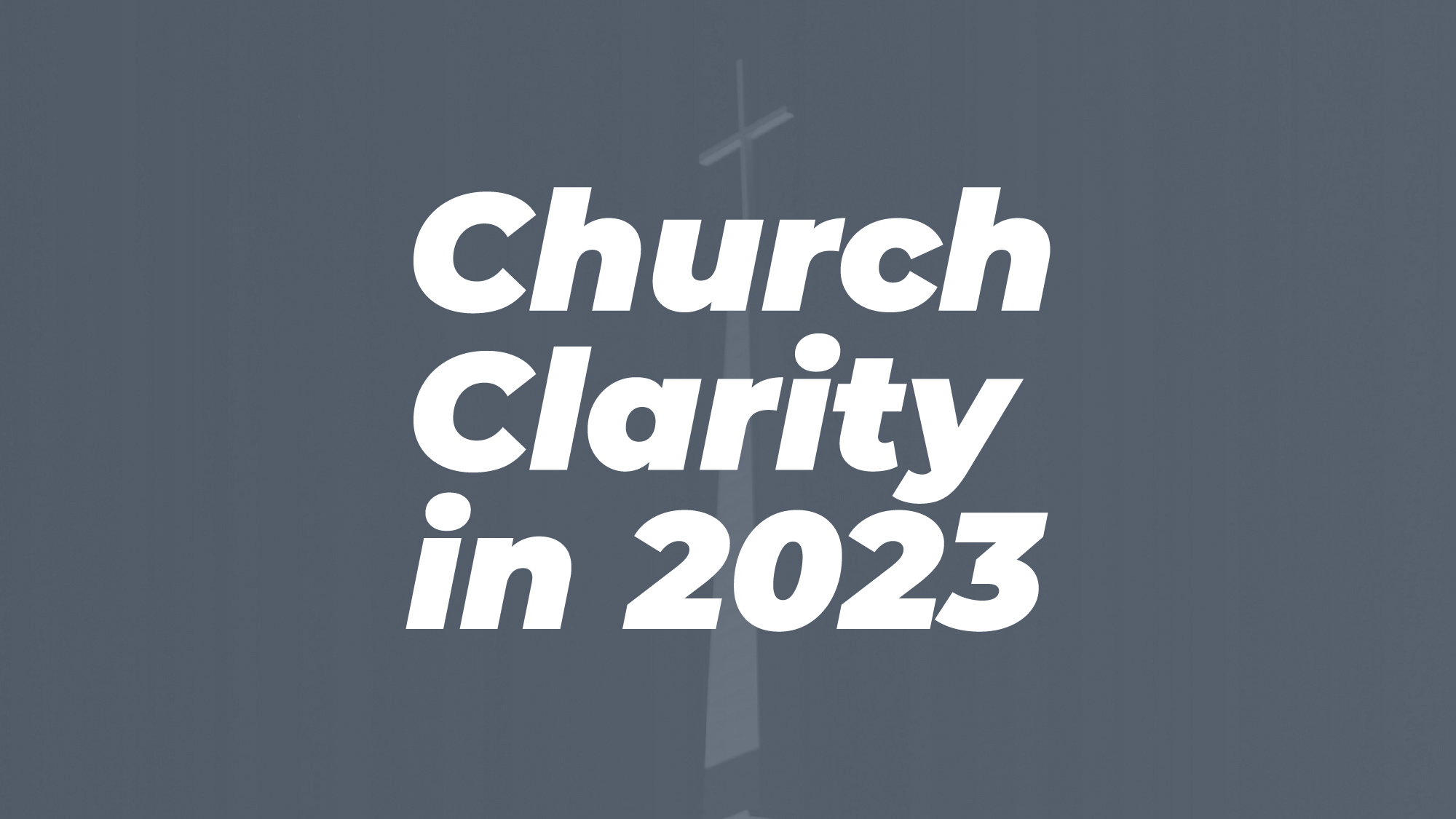
You’ve heard this before: Covid did not change anything, but rather accelerated a change that was already in place. In short, the past few years condensed 20 years of change into a 2-3 year period. And here we are in 2023, facing a myriad of challenges: Rising interest rates, increasing construction costs, an enormous shift in our engagement strategies, a looming recession, labor market issues, reorganization, just to name a few. Yet, with every leadership team we speak with, we hear excitement and hope for what is to come in 2023. We believe that there is a reason for that.
Here are four things we see happening in 2023:
Digital engagement will continue to evolve into a daily practice, not aggregate sermon consumption.
In one of our most popular articles from 2022, The Real Purpose of the Online Church, we identified that the real opportunity of digital engagement is to make the Gospel a part of people’s everyday lives through the local church. In 2022, we helped a large number of churches create their digital and in-person strategy, and expect that in 2023 we will see more churches tailor their digital experience to reach larger audiences and focus on daily engagement and discipleship versus consuming a service online.
Building Utilization: More churches will look to activate their buildings for weekly use and to financially fuel ministry.
This was possibly the biggest trend we saw develop. Before Covid, we would maybe average 2 projects per year for churches who were looking to utilize their space during the week for missional and monetary purposes to serve the community. In 2022, we ended the year with 35 church campuses across the country that had engaged with unlocking their ministry spaces, mostly for child care. We expect in 2023 that this trend will only accelerate, as the early adopters of this concept will begin to have success, and more churches will follow.
Shift in the labor market
While the unemployment rate stands at a staggeringly low 3.5%, the Great Resignation will likely slow down and we will see the labor market somewhat normalize due to a looming recession and inflation. Churches have had an incredibly difficult time keeping people and hiring new people. This should get somewhat easier this year, as corporations like Google (who recently let go of 12,000 people) and others are laying off an enormous amount of people to focus on profitability and sustainability more than growth. The normalizing of the labor market should also lead to fewer job transfers.
However, we do expect the issue of succession at the executive level in the Church will continue. There is simply too much change still happening in the Church, and there will continue to be an influx of new, younger leadership at the executive level.
Inflation and a looming recession will impact engagement
People have said for years that the Church is counter-cyclical: the worse things get, the more people go to church, which we saw in 2008. While this may be true on some level, there will be one large difference between this recession versus 2008. In 2008, the majority of the boomers had just begun to get to retirement age, and the majority of people in that category were still working and looking forward to retirement. Not only are the majority of the boomers at the age of retirement now, but corporations gave most of those people golden parachutes to take retirement early. Why does that matter? Because now the people who hold the majority of the wealth in the United States are now living off of assets and not income. They are going to be significantly more protective of their financial future than in 2008. For this group to be engaged in the mission of the Church, it is going to take a different level of strategy to keep them engaged.
Younger generations, who have significantly less wealth and are also less engaged with the Church, are looking for ways to be engaged that are very different from how we engaged with the Boomers.
So what will this mean for the Church?
In business, when markets are stable and somewhat predictable, companies focus almost all of their energy and resources on scale and growth. When market conditions change, a company's ability to scale becomes less important because the product or service has to change in order to maintain relevance in the marketplace.
That being said, conditions are always changing, so a company (or church) that remains static will eventually lose relevance. And while the people that any organization is trying to reach change what they’re wanting or how they want to receive it, an organization that is only focused on scale and growth with the old model of delivery will frustrate themselves, spending more time, energy, and money but never seeing the results they once saw.
We’re seeing this with the Church. The way people are engaging with each other and with churches has changed, and there is still a lot of time and energy being put into growth and scale with an old model, which is frustrating the leadership of churches, who are asking why they are putting in twice as much effort and getting half the results.
So what is the most important trait for any organization that wants to not only survive but thrive in the ever-changing landscape of reaching people? Adaptability. Rapid Adaptability. In 2023, the organizations that will thrive against the headwinds of change are those that aren’t just focused on learning how to do one thing well, but those who become really good at learning how to do new things.
Andy Grove, former CEO of Intel, was quoted to say, “Bad companies are destroyed by crisis. Good companies survive them. Great companies are improved by them.”
While this time of change will continue to frustrate some, it will also create new and exciting opportunities for churches who are willing to adapt. We love the Joshua and Caleb type of leaders who are looking out at the change and challenges ahead of us, but who also remember that the Promised Land is just that…. Promised. As Kevin Penry of Life.Church so wisely said, “There is certainty in the Promise, just not in the process”.
We want to help leaders gain clarity on how to move their organizations from the current reality to their preferred future. If that’s you, click on the link below and our team would be happy to jump on a call with you to take a free next step towards clarity.
- Buildings and Finance Insights (76)
- Ministry Insights (71)
- Organizational Insights (62)
- Church Growth (59)
- Leadership (48)
- Buildings and Finance (39)
- Facility Strategy (33)
- Featured Insight - Buildings and Finance (31)
- Financial Strategy (29)
- Digital Engagement (28)
- Organizational Clarity and Strategy (28)
- Featured Insight - Buildings That Fund Ministry (23)
- Multisite (21)
- Buildings That Fund Ministry (19)
- Digital Engagement Insights (19)
- Media (17)
- Church Debt (12)
- Ministry Growth (12)
- Featured Insight - Digital Engagement (8)
- Hiring (6)
- Strategy (5)
- Insight FEATURED (4)
- Ministry Strategy (4)
- Church Mergers (3)
- Digital Strategy (3)
- Featured Insight - Multisite (3)
- Merger Insights (3)
- Clarity (2)
- Consultants (2)
- Data Analysis and Reporting (2)
- Ministry Solutions Group (2)
- Organizational Leadership (2)
- Clear Path Forward (1)
- Consultants - Ministry Strategy (1)
- Featured Insight - Project Financing (1)
- Featured Insight - Succession Planning (1)
- Ministry Solutions Group Team (1)
- Succession Insights (1)

 Nathan Artt
Nathan Artt

Thoughts or insights? We'd love to read them. Please share your insights below.